International
The Brazilian Amazon relives the drama of drought: empty channels and isolated communities
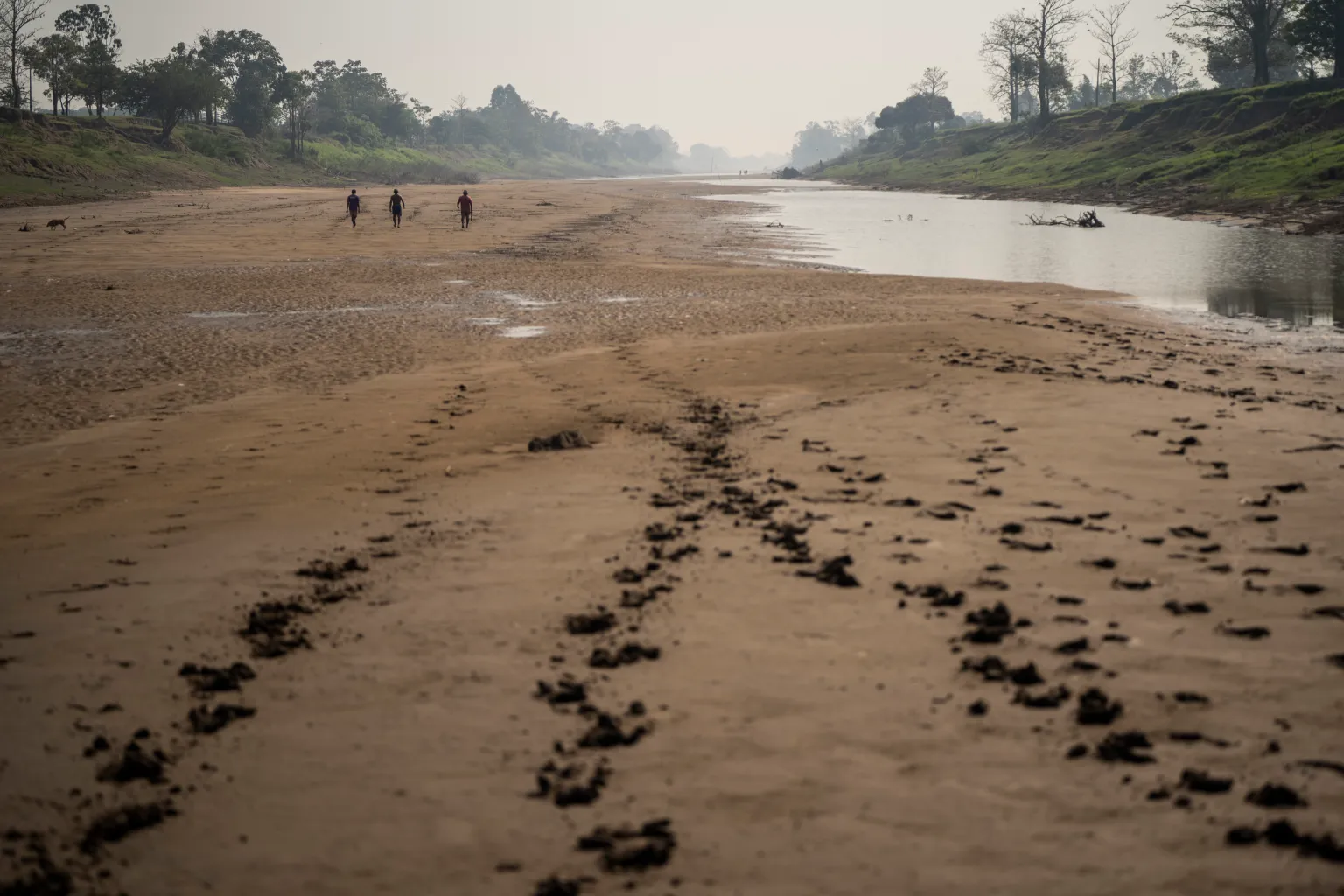
The Brazilian Amazon is once again suffering an extreme drought that threatens to worsen in the coming months.
In Manaquiri, near Manaus, there are already dry riverbeds, cornered fish and about twenty isolated rural communities.
After a dramatic 2023, Brazil faces the worst drought since 1950 this year and one of the most affected parts of the country is the Amazon region, according to the National Center for Surveillance and Alert of Natural Disasters data.
In the state of Amazonas, the Government has decreed an “emergency situation” in its 62 municipalities due to drought and forest fires. The meteorological specialists had already anticipated it and it has been confirmed.
“Everything indicates that we will have a very serious drought. The rivers will go down like never before,” warned the governor of Amazonas, Wilson Lima.
The Negro River, one of the main tributaries of the Amazon, today has a level four meters lower than in the same period last year. Throughout Amazonas, the Brazilian state with the largest number of indigenous population, the drought already directly affects about 80,000 families, according to the Civil Defense.
Several hundred of them are in Manaquiri, where from the end of August you can walk along the dry bed of the river that bathes this town (Paraná Manaquiri).
The footprints are marked on the sandbanks, once covered with fresh water and today naked in the sunlight. Where boats loaded with goods used to sail and today you can ride a horse.
Hundreds of herons take advantage of the drought to feed on fish that are restricted to the little river left.
Meanwhile, Ednaldo Freitas, 35, is busy connecting all the hoses he had at home and thus be able to reach the part where there is still water, according to EFE.
That’s not his only problem. Their children have to walk several kilometers these days to get to school, because the boat that transported them no longer arrives because there is no river.
To go to Manaus, the regional capital, it is still possible to go by another tributary, although it takes an hour longer than usual, which hinders the transport of medicines, food, etc., and harms the local economy.
And with the severe drought, fires have multiplied. This Sunday there were 3,640 active foci throughout Brazil, half of them in the Amazon, the largest tropical forest on the planet. In the state of Amazonas alone there were 237.
In other areas of the country, the flames are also advancing. A fire has burned in four days about 10,000 hectares of the Chapada dos Veadeiros National Park, near the Federal District of Brasilia, which this Sunday was again shrouded in smoke.
São Paulo and Minas Gerais, the two most populous states in Brazil, have also mobilized a large number of troops to fight forest fires in their territories, on which there are suspicions that many of them have been caused.
International
Ukraine declares nationwide energy emergency amid russian attacks and extreme cold
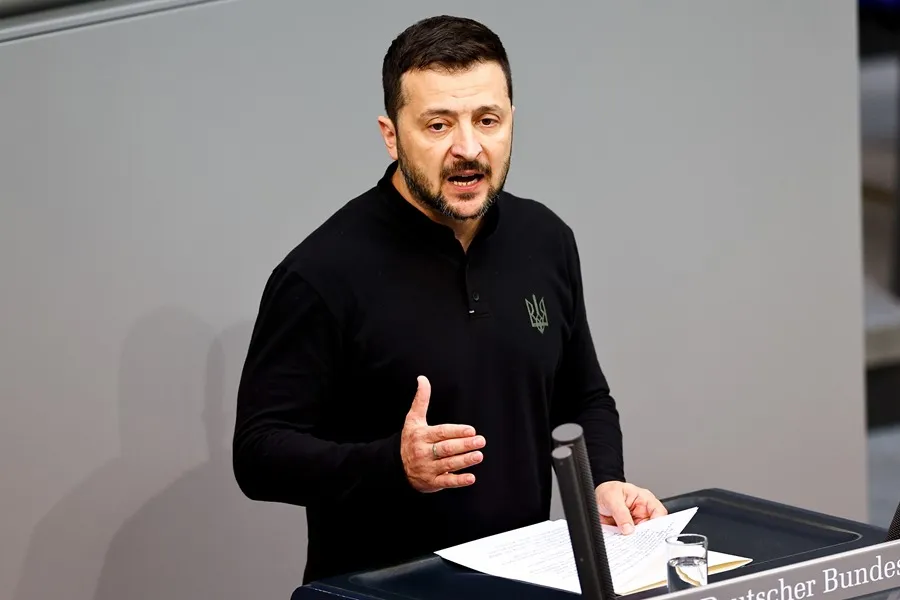
The Ukrainian government on Wednesday declared a nationwide energy state of emergency amid continued Russian military attacks and extreme winter weather, with nighttime temperatures dropping as low as minus 18 degrees Celsius.
“The consequences of Russian attacks and worsening weather conditions are severe (…) Overall, a state of emergency will be declared for Ukraine’s energy sector,” Ukrainian President Volodymyr Zelensky said in a statement posted on social media following a meeting with senior officials.
Zelensky announced the creation of a “permanent coordination headquarters” to manage the crisis in the capital, Kyiv, and tasked former defence minister and current energy chief Denys Shmyhal with overseeing support efforts for affected individuals and communities, including addressing power outages, heating shortages and other “practical issues.”
“There are many problems that require urgent solutions,” the president said, noting that repair crews, energy companies, municipal services and the State Emergency Service are working “around the clock” to restore electricity supplies. Kyiv has been particularly affected after Russian strikes last Friday disabled key parts of the power grid, as daytime temperatures hover around minus 12 degrees Celsius and plunge to minus 18 at night.
Zelensky added that public authorities will “maximize efforts with partners to obtain the necessary equipment and additional support,” while the government will ensure “maximum deregulation of all processes” to speed up the connection of backup power equipment to the grid. He also confirmed that work is underway to significantly increase electricity imports into Ukraine.
The Ukrainian leader further instructed his Cabinet to review curfew regulations in light of the extreme cold, arguing that citizens must have the greatest possible access to assistance centers, while businesses should be given flexibility to plan their operations according to the state of the energy system.
International
France joins Denmark’s ‘Operation Arctic Resistance’ in Greenland amid U.S. tensions

French President Emmanuel Macron confirmed in the early hours of Thursday (Wednesday afternoon in El Salvador) that France will take part in “Operation Arctic Resistance,” after Denmark announced it would expand its military presence in Greenland amid rising tensions with the United States over Washington’s stated ambitions regarding the semi-autonomous territory.
“At Denmark’s request, I have decided that France will participate in the joint exercises organized by Denmark in Greenland, ‘Operation Arctic Resistance,’” Macron said in a brief message posted on social media at 5:18 p.m.
The French president added that “the first French military elements are already on their way, with others to follow,” though he did not specify the number of troops being deployed or the scale of France’s planned contribution.
The governments of Sweden, Norway and Germany have also confirmed the deployment of military contingents to Greenland. Germany’s armed forces will send a 13-member reconnaissance team to the Greenlandic capital, Nuuk, to take part in a mission scheduled to run from Thursday through Saturday, according to the German Ministry of Defence.
Denmark’s announcement came shortly before a Danish delegation met at the White House with U.S. Vice President JD Vance and Secretary of State Marco Rubio to discuss Washington’s plans regarding Greenland. Copenhagen said the military activities would be carried out “in close cooperation with NATO allies.”
International
Iran closes airspace amid U.S. threats and deadly nationwide protests
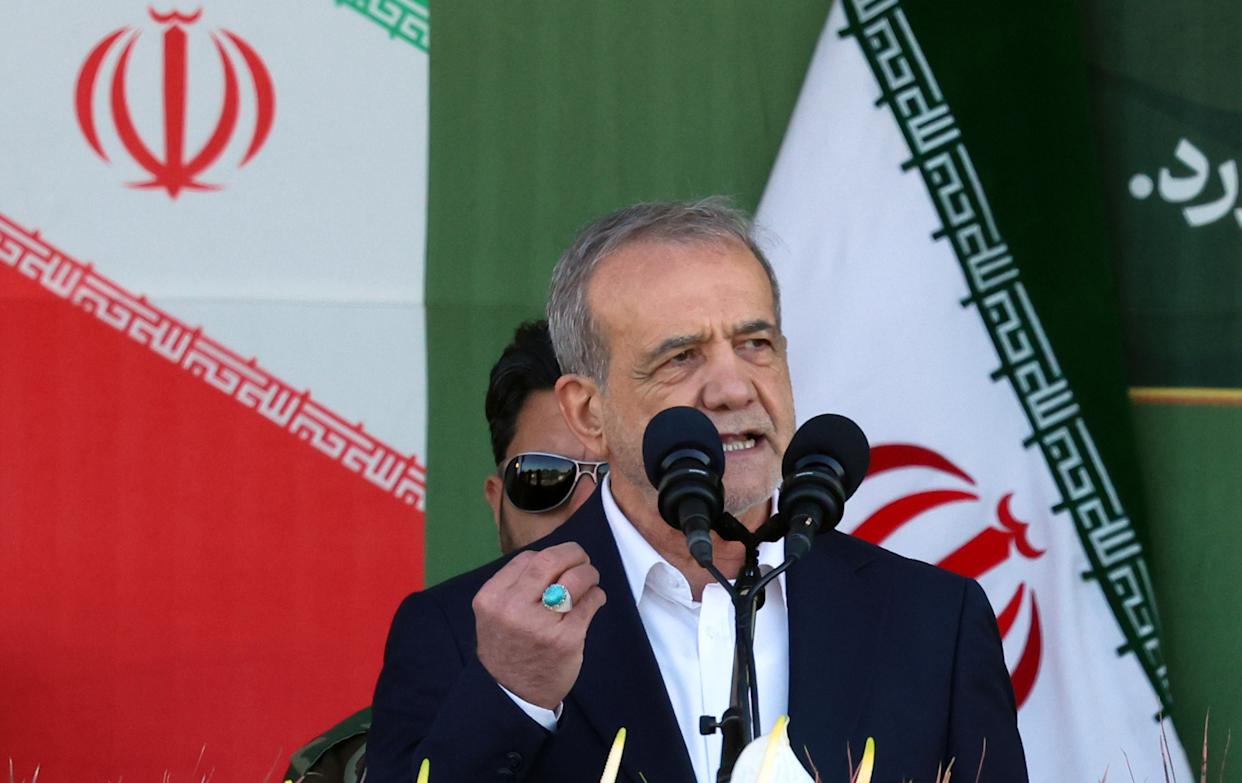
Iranian authorities closed the country’s airspace in the early hours of Thursday, according to data from flight-tracking website FlightRadar24, amid growing threats of a possible U.S. attack as protests across the country continue and have reportedly left thousands dead.
According to FlightRadar24, the Iranian government suspended all flights to and from the country, except for international flights that have received special authorization. The notice was initially issued for a duration of just over two hours.
The move comes after U.S. President Donald Trump in recent days threatened to strike Iran if its security forces failed to halt the deaths linked to weeks-long protests that began in Tehran and later spread to other Iranian cities. Despite the threats, the White House said diplomacy remains Trump’s preferred option.
Speaking from the Oval Office on Wednesday, Trump claimed that “the deaths in Iran have stopped” and said there would be no executions of protesters following his warnings to Tehran. He added that his administration would seek to verify those claims.
“I’ve been told the deaths in Iran are stopping. They’ve stopped, and that there are no plans for executions,” Trump told reporters, cautioning that the United States would be “very upset” if those assurances proved to be untrue.
The statements contrast with reports from rights groups. The Norway-based NGO Iran Human Rights (IHRNGO) said on Wednesday that more than 3,400 people have been killed since the protests erupted. Meanwhile, Kurdish-Iranian rights group Hengaw reported this week that a 26-year-old Iranian man, Erfan Soltani, was facing execution as of Wednesday.
-

 International3 days ago
International3 days agoDeadly van accident near Brazil border leaves 11 dead in Bolivia
-
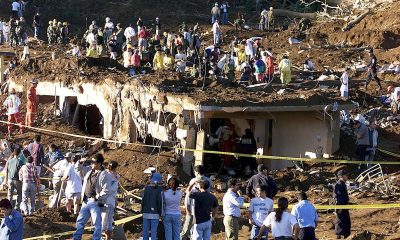
 Central America3 days ago
Central America3 days agoTaiwan’s $10 million donation after 2001 earthquakes allegedly diverted in El Salvador
-

 Central America3 days ago
Central America3 days agoU.S. and El Salvador maintain close partnership, embassy says
-

 International3 days ago
International3 days agoU.S. to host Danish and Greenlandic Foreign Ministers at the White House
-
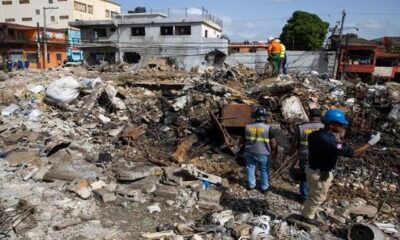
 International3 days ago
International3 days agoDominican court postpones hearing in deadly nightclub collapse case
-

 International3 days ago
International3 days agoPolice hunt gunmen after fatal shooting in Corsica
-

 International3 days ago
International3 days agoEx-President accused of bid to establish dictatorship as verdict nears in South Korea
-

 International3 days ago
International3 days agoVenezuelan opposition leader dedicates Nobel Prize to Trump
-
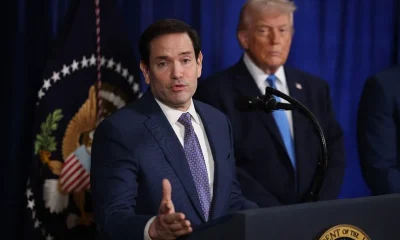
 International4 days ago
International4 days agoU.S. Issues Urgent Evacuation Call for Citizens in Venezuela
-
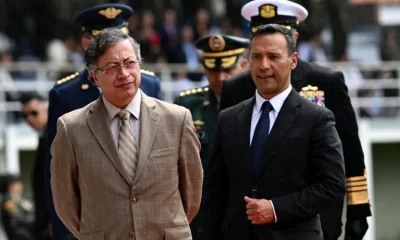
 International2 days ago
International2 days agoColombian Defense Chief Meets U.S. Officials to Advance Bilateral Narcotics Strategy
-

 Central America1 day ago
Central America1 day agoBukele warns crime can become a ‘parallel government’ during visit to Costa Rica
-

 International2 days ago
International2 days agoPeruvian Court Orders Definitive Dismissal of Money Laundering Case Against Keiko Fujimori
-

 International1 day ago
International1 day agoU.S. to suspend visa processing for applicants from 75 countries
-

 International17 hours ago
International17 hours agoIran closes airspace amid U.S. threats and deadly nationwide protests
-

 International17 hours ago
International17 hours agoUK Intelligence estimates russian casualties in Ukraine at over 1.2 million
-

 International17 hours ago
International17 hours agoUkraine declares nationwide energy emergency amid russian attacks and extreme cold
-

 International17 hours ago
International17 hours agoU.S.–Denmark tensions escalate as Trump pushes NATO to back U.S. claim on Greenland
-

 International17 hours ago
International17 hours agoFrance joins Denmark’s ‘Operation Arctic Resistance’ in Greenland amid U.S. tensions
-
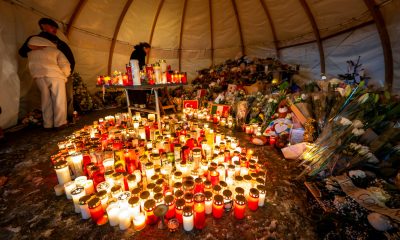
 International17 hours ago
International17 hours agoSwiss Canton of Valais Grants Emergency Aid to Victims of Crans-Montana Bar Tragedy
-

 International17 hours ago
International17 hours agoHillary Clinton skips Epstein inquiry as house panel threatens contempt charges
-

 International17 hours ago
International17 hours agoX moves to block Grok from creating sexualized images of real people amid legal scrutiny


























